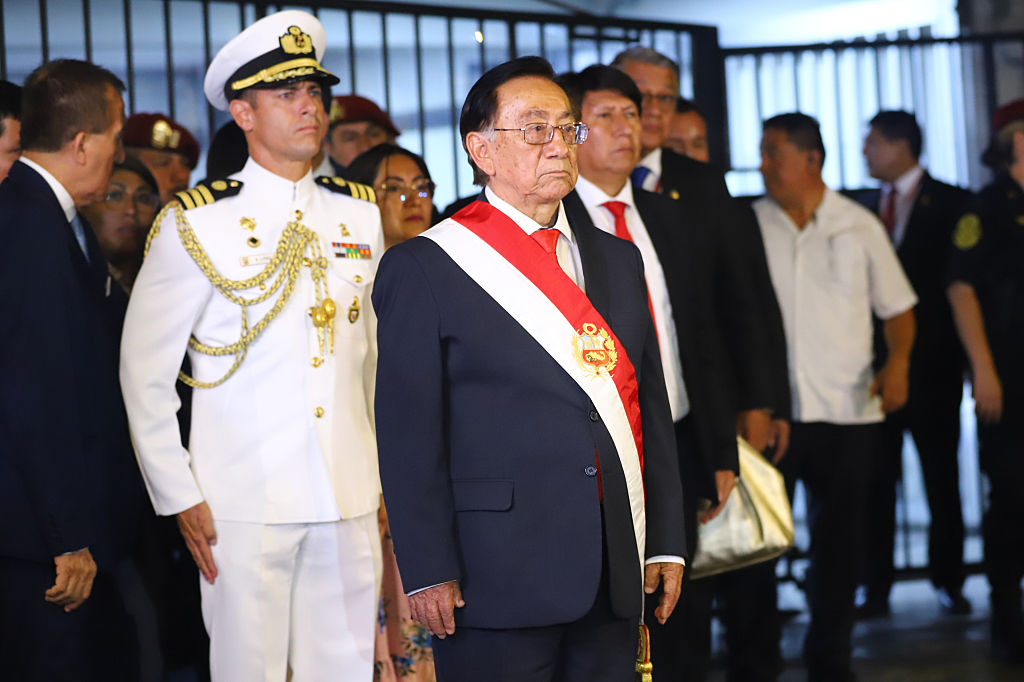To Run or Not to Run: Uribe's Question
To Run or Not to Run: Uribe's Question
The Colombian Senate brought President Colombia's Álvaro Uribe a step closer to a third term when it approved a bill allowing for a reelection referendum. But the president has not yet made his intentions clear about a possible candidacy. Meanwhile, Defense Minister Juan Manuel Santos resigned and may join the race.
Colombia’s Defense Minister Juan Manuel Santos steps down from his post on May 23 to become a presidential candidate for the 2010 elections. But there’s a catch: He’ll only declare his candidacy if President Álvaro Uribe chooses not to run for his second reelection. In an interview with Caracol Radio, Santos said that “he had the hunch that Uribe may not run” but that the president may not make his decision until October. Moreover, Colombia’s Senate approved legislation this week allowing a public referendum on whether President Álvaro Uribe should be allowed to run for his second consecutive reelection. The president may be delaying his decision in order to make the opposition seem weak and divided, thereby giving his party a boost on election day.
When Semana picked Santos as Colombia’s 2008 person of the year in December, the minister was already acting like a candidate on the road, offering gifts in various communities and inviting journalists to follow. In an interview with Cambio magazine this week, Santos reiterated his loyalty to Uribe and to upholding his democratic security policies if elected. Still, Santos finds himself competing for second place in popularity standings with former Medellín Mayor Sergio Fajardo. Other presidential hopefuls include former Agriculture Minister Andrés Felipe Arias, Ambassador Noemí Sanín, and the leader of the Cambio Radical political party Senator Germán Vargas Lleras.
During a September 2009 AS/COA luncheon, Uribe stated that “Colombia needs to reelect policies, not people.” Yet, eight months later, he remains ambiguous about his intentions. His approval ratings run above 70 percent and polls indicate he would likely win reelection. The Senate bill approving a reelection referendum earlier this week was passed by a 62-5 vote, though more than two dozen members of the opposition refused to participate. The bill needs to be reconciled with one from the house, then evaluated by the Constitutional Court. After clearing those hurdles, the referendum may be scheduled for some point in the fall.
Uribe’s popularity appears to stem from the fact that his administration oversaw the significant weakening of the Armed Revolutionary Forces of Colombia (FARC) and a period of economic renewal. In contrast, his high ratings have not been significantly damaged by recent wiretapping scandals involving Casa de Nariño and the Supreme Court, a cooling economy, or the extrajudicial killings of civilians by members of Colombia’s armed forces. “It may just be that they’re drinking Uribe’s Kool-aid,” comments the Latin American Thought blog in an analysis of recent poll data. The blog also suggests that Colombians place higher value on their security and economic issues than on democratic freedoms.
The idea of a third term for Uribe is a source of controversy for many. The Christian Science Monitor raises the question of whether Uribe is “following [Venezuelan President Hugo] Chávez’s footsteps?” In response, “Uribe has said he is only interested in seeing continuity for his security policies, but he has also hinted that he is the best one to do it,” the Monitor adds. Miami Herald’s columnist Andrés Oppenheimer says that Uribe should not run because “he would lose all moral authority to criticize Chávez and other elected autocrats who see themselves as ‘indispensable men’ and who end up destroying their countries' institutions. There is no such thing as a good dictator, and Uribe would not be an exception to the rule.” The Economist reflects on the good and bad of Uribe’s two presidential terms but says: “If he doesn’t quit while he is still ahead, history may judge that Mr. Uribe began to undo his own achievement.”







